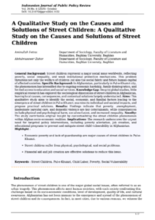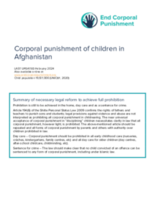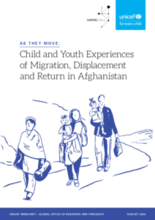Displaying 1 - 10 of 43
In this article, Hasht-e Subh reports that the Taliban has abruptly closed private orphanages across Afghanistan, seized their assets, and transferred thousands of vulnerable children into state-run facilities under Taliban control—raising deep co
This study explores the social, economic, and familial factors contributing to the rise of street children in Pul-e-Khumri, Afghanistan, where poverty, unemployment, and family breakdown have deepened the crisis. By highlighting the severe individual and societal impacts, it calls for targeted policies—such as poverty reduction, job creation, and access to education—to address the root causes and protect vulnerable children.
This statement by UNICEF Deputy Executive Director for Humanitarian Action and Supply Operations Ted Chaiban notes how the rapid pace of returns to Afghanistan—peaking at over 50,000 arrivals in a single day—has overwhelmed fragile communities.
This article explores the complex landscape of alternative care for orphaned and vulnerable children in Afghanistan against the backdrop of prolonged conflict, political turmoil and socio-economic challenges.
This is a corporal punishment country report for Afghanistan. In Afghanistan, the Law on Protection of Child Rights 2019 prohibits corporal punishment in alternative care settings and in penal institutions.
The experience children and young people who migrated from their homes in Afghanistan – especially those who have been forced to return – can be described as a spiral of harm and neglect.
CHARLOTTESVILLE, Va. (AP) — In a highly unusual ruling, a state court judge on Thursday voided a U.S. Marine’s adoption of an Afghan war orphan, more than a year after he took the little girl away from the Afghan couple raising her. But her future remains uncertain.
Army Rangers killed her parents. A Marine is raising her in America. But her Afghan family says she was taken under false pretenses.
Thousands of at-risk Afghans need practical, accessible, and legal routes to international protection, and continued efforts to ensure support for those “involuntarily immobile.”
Seven months after the fall of Kabul, shelters in the U.S. caring for children evacuated without their parents are experiencing unprecedented violence while workers at the facilities have struggled to respond to the young Afghans’ trauma.




